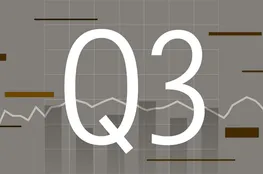The proposed GOP tax bill represents a dramatic shift in American economic policy, fundamentally altering the distribution of wealth and prioritizing benefits for corporations and the wealthiest individuals. This legislation isn’t simply a series of adjustments; it’s the largest upward redistribution of wealth in U.S. history, a fact underscored by data from the Center on Budget Policy (May 22). The core issue lies in the disproportionate impact on the most vulnerable members of our society. Specifically, the top 0.6 percent of earners – those with annual incomes of $1 million or more – would receive a total tax cut significantly exceeding that of 127 million individuals earning less than $100,000. This stark contrast highlights the bill’s primary objective: to channel resources away from those struggling to make ends meet and towards those with substantial financial assets. The implications are profound, demanding a critical examination of the bill’s potential consequences. In essence, the proposed legislation seeks to reduce vital food and healthcare benefits for the poorest Americans, directly funding the substantial tax cuts allocated to the wealthy. These cuts would translate to a staggering $800 billion reduction in Medicaid and the Affordable Care Act, alongside an additional $300+ billion in cuts to vital food assistance programs. These reductions represent a severe threat to the well-being of millions reliant on these crucial safety nets. Beyond these immediate impacts, the legislation also introduces a range of concerning changes, including the elimination of crucial clean energy credits, a drastic defunding of planned parenthood initiatives, and significant cuts to education and medical research programs. Furthermore, the bill enacts a ban on funding for gender affirming care for minors, raising serious ethical and healthcare concerns.
The proposed changes extend beyond domestic policy, with the bill allocating $175 billion more to enforce Trump’s immigration agenda, alongside a $150 billion increase in military spending. However, arguably the most alarming aspect of the bill is the permanent extension of the 2017 Trump tax cuts. This decision is projected to add a staggering $3.8 trillion to the national debt over the next decade, according to projections from the Congressional Budget Office (May). This long-term debt accumulation presents a serious challenge to the nation’s fiscal stability and raises questions about the sustainability of this economic policy. The long-term consequences of this legislation demand careful consideration, including the potential impact on economic growth, social equity, and the overall well-being of the American people. It is imperative that policymakers thoroughly evaluate the potential ramifications before enacting such a transformative and potentially detrimental shift in economic policy. The current trajectory risks exacerbating existing inequalities and jeopardizing the future prosperity of a significant portion of the population. Addressing these concerns requires a comprehensive and nuanced approach, prioritizing policies that promote equitable growth and safeguard the needs of all Americans, not just the wealthiest few. The debate surrounding this tax bill is not simply about numbers; it’s about the values we uphold as a nation and the kind of future we envision for generations to come. It’s a critical juncture where we must decide whether to prioritize short-term gains for a select few or invest in a more just and sustainable economic system for all.
























